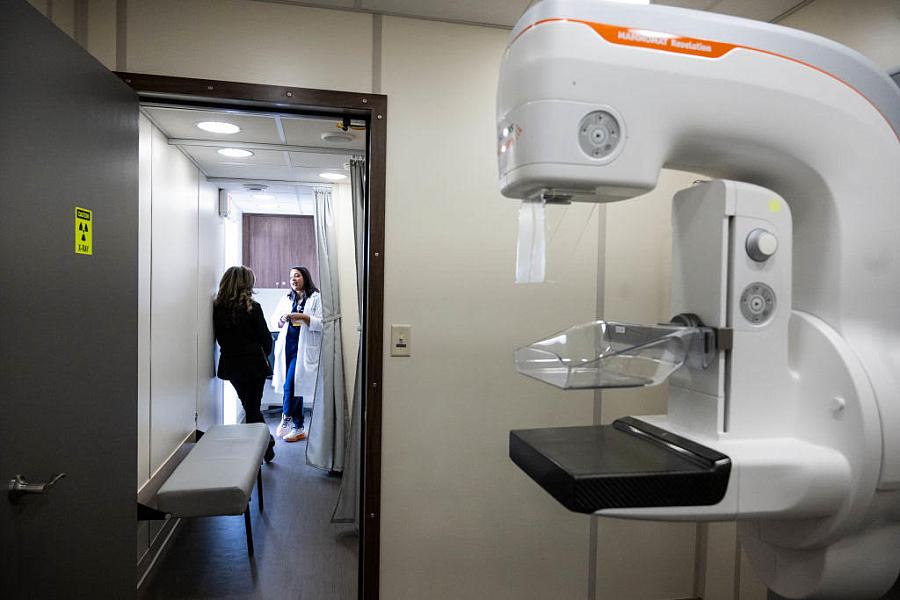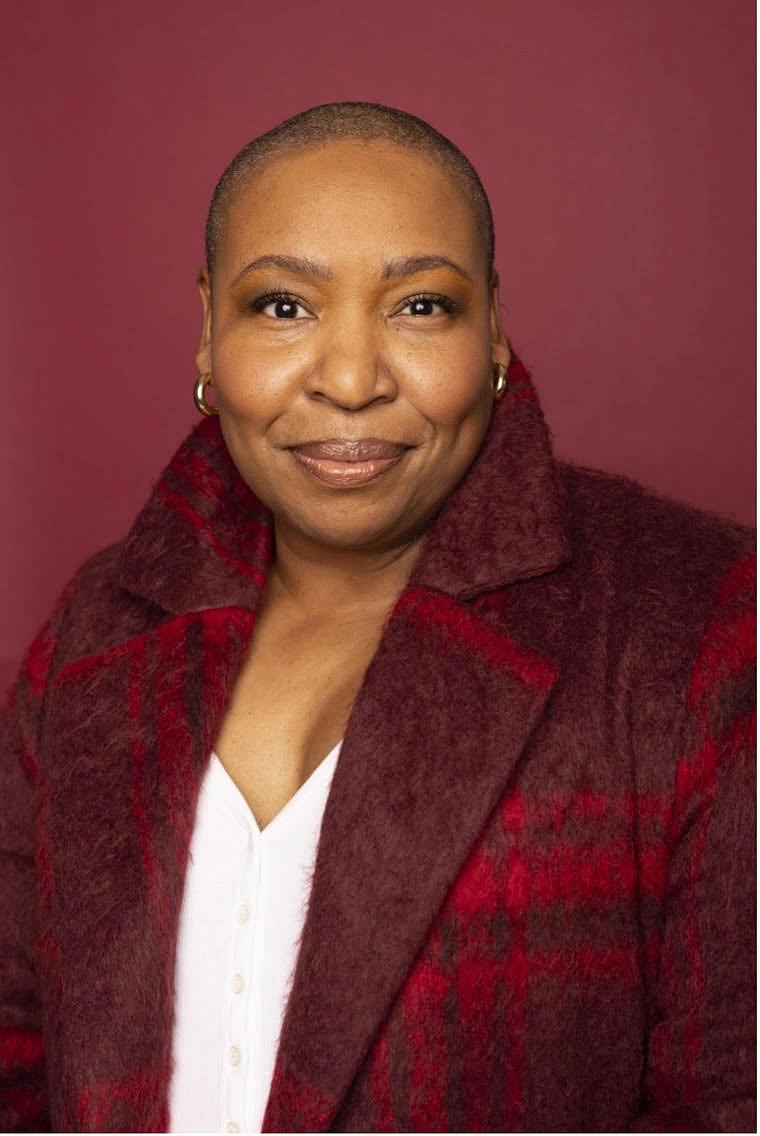The Health Divide: She found a lump. Her doctors made the experience much worse.
Image

(Photo by Sarah Reingewirtz/MediaNews Group/Los Angeles Daily News via Getty Images)
Published on
October 6, 2025
Nikea Gamby-Turner was not shocked when she learned Black women are much less likely to schedule a follow-up appointment after receiving an abnormal mammogram.
Twenty-one years ago, the Los Angeles-based actress found a lump in her left breast after performing a self-exam.
She called her mother, who told her not to panic. She also told her to take a few weeks to see if the lump would disappear. It didn’t. When she went to see a physician about her lump, she said the team of white doctors made her feel “ignorant.”
Gamby-Turner, who is African American, recalled being in the doctor’s office during one of her most vulnerable moments, which was made even worse when the doctors questioned whether she could afford the breast removal procedures. They assumed that her acting jobs couldn't cover the surgery.
“They would not listen to me at all. Every time I tried to ask them a question so they would see me as a person and not just a number, I wasn’t given an answer. When I requested a second opinion, my concerns were met with condemnation. It was a horrible experience that left me wondering if I would ever return,” she said. “They really made me feel like a (racial slur),” said Gamby-Turner, 51.
Along with being spoken to disrespectfully, she felt that the white team of doctors tried to rush her into having her breast removed. They also told her that they couldn't perform the procedure without a substantial out-of-pocket cost due to a high deductible.
One doctor even suggested that she find a job at a grocery or convenience store that offered better insurance before she returned.
By the time she left the hospital, Gamby-Turner was in tears.
“I didn’t want to go back,” she admitted. “I actually lost faith in modern medicine after that.”
Overwhelmed with the news of cancer, Gamby-Turner would proceed to get a second opinion, which confirmed her original diagnosis.
“It was one of the worst experiences of my life at one of the most critical points of my life because it was about my health. This was about life or death, and I just needed time to process,” she said.
Black women experience delays in care
Image

Nikea Gamby-Turner
(Photo by Maxwell Poth)
Black women are 38% more likely to die from breast cancer than white women, despite having a 5% lower incidence of the disease.
A study conducted by the UNC-Chapel Hill Gillings School of Global Public Health found that Black women are more likely than white women to experience delays of 60 days or more before starting breast cancer treatment. The study connected these delays to systemic factors, including barriers to accessing care within the health care system, financial difficulties, and social issues, like not being able to take time off work without the stress of strained finances.
Another study published in 2017 identified four main factors that explain the higher mortality risk of Black women from breast cancer: the absence of private health insurance, more aggressive tumors, and disparities in their access to high-quality screenings as well as treatments.
Gamby-Turner was fortunate in that she didn't face much delay in starting her treatment. Not long after her challenging encounters with the initial white care team, her mother stopped at a grocery store and happened to meet a Black female doctor. This doctor had a daughter who specialized in breast cancer treatment for African American women. Gamby-Turner met with the specialist, and they developed a strong bond.
“She addressed my concerns — all of them — and we went through this together. She understood how I felt, and because she understood me, I trusted her,” Gamby-Turner said.
Gamby-Turner believes, based on her own experiences and those of other Black women she knows who have gone through similar situations, that negative and condescending attitudes from physicians towards Black women also significantly contribute to these delays.
Gamby-Turner was diagnosed with breast cancer on Oct. 25, 2004, right after her 30th birthday. Since then, she has heard from other Black women who are breast cancer survivors who have shared with her how they have felt unheard by their doctors, belittled, and treated as if they don’t matter. Without a strong support system, Gamby-Turner said women can quickly become overwhelmed.
"What people often fail to understand is that the decisions ultimately rest with the person who has cancer, and that can be overwhelming,” she explained. “Sometimes, you just need time to process everything.”
Gamby-Turner, who has appeared in the mockumentary sitcom Abbott Elementary on ABC, said that she didn't need a study to understand why Black women might take up to two months to process their breast cancer diagnosis before seeking treatment.
She ultimately chose to get a double mastectomy.
After fighting cancer, her body went through many changes. She has scars from her breast removal and surgical drains. She also experienced weight gain due to lymphedema, a condition that affects the lymphatic system and causes fluid to build up in the body. Dating and sexual relationships have been hard, and some of the comments brutal.
In response to her experiences, Gamby-Turner sought therapy and openly discussed her journey on social media.
For health journalists covering stories about Black women facing breast cancer or the challenges of having their breasts removed, Gamby-Turner highlighted the importance of sharing their experiences with how they were treated by their doctors, since this can be key to when and if they begin treatment.
She also emphasized the importance of sharing stories from cancer survivors' perspectives, especially regarding their mental health. One challenge she faced was making quick decisions, as some family members and friends, despite good intentions, encouraged her to act swiftly to deal with the cancer.
She reminds people — and this category includes doctors — that it’s always the person dealing with the cancer decision who gets to decide what they want to do. “Even if they choose not to do anything, that decision is ultimately theirs,” she said.

